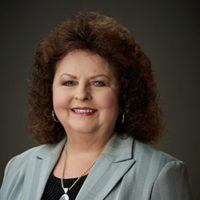Each and every day, educators and administrators in educational institutions around the world seek new ways to help students reach their greatest potential. No longer are parents, communities or even students satisfied with minimum requirements. Educators and administrators must be prepared to meet this demand and continue to improve as they strive for excellence.
The commitment to continuous improvement is a dynamic effort, consistently requiring attention and revision. AdvancED expects this commitment from the educational institutions we serve, and we expect it of ourselves. To that end, once every five years, AdvancED reviews, and revises if necessary, the Standards that serve as the foundation of the AdvancED Accreditation Protocol.
Stretching for the Future
The new AdvancED Standards for Quality, which will be implemented in the 2012-13 school year, will lead schools and school systems into the future, challenging them to reach higher, to examine closer, and to demonstrate the fidelity and integrity of best practices. No longer will institutions just meet AdvancED Standards of best practice; they will demonstrate continuous improvement in the use of those best practices.
The new Standards will “stretch” even the best of schools and school systems to exceed their current performance levels, while giving underperforming schools a roadmap to improve. Combined, the Standards, indicators, and performance levels reflect the current “best thinking” in education research today, including topics such as personalization, collaborative learning, and collective accountability. They significantly increase the focus on teaching and learning; incorporate 21st Century Skills; embed high expectations for professional practice; and focus on rigor, equity, student engagement, and depth and application of knowledge.
Evolving Accreditation
Coupled with the new Standards is an updated AdvancED Accreditation Protocol that provides a framework for schools and visiting peer review teams to delve deeply into data to discover more accurately and completely the practices that are working and those that should be adjusted or discarded. The AdvancED Accreditation Protocol will bring together observations of the peer review team, insights from the institution’s own self-reflection, student achievement results, and stakeholder perception data to provide a more complete view of the institution’s overall effectiveness. The new protocol provides a true balance of measures between student performance and the institution’s instructional processes and practices.
The new AdvancED Standards for Quality and Accreditation Protocol are designed for the future, not just today. They represent the continued evolution of accreditation as a powerful tool for driving effective practices in support of student learning.
AdvancED takes seriously its role as a leader in accreditation and school improvement. To that end, it is only fitting that the new Standards for Quality and AdvancED Accreditation Protocol are leading schools and school systems for the future.
© Cognia Inc.
This article may be republished or reproduced in accordance with The Source Copyright Policy.
The information in this article is given to the reader with the understanding that neither the author nor Cognia is in engaged in rendering any legal or business advice to the user or general public. The views, thoughts, and opinions expressed in this article belong solely to the author(s), and do not necessarily reflect the official policy or position of Cognia, the author’s employer, organization, or other group or individual.

